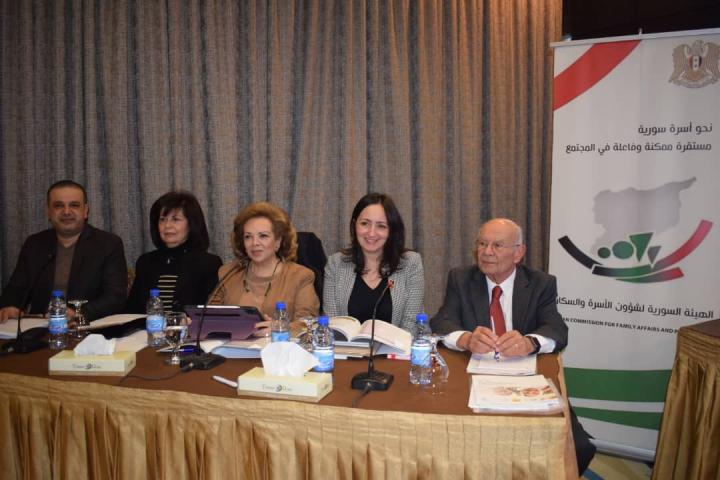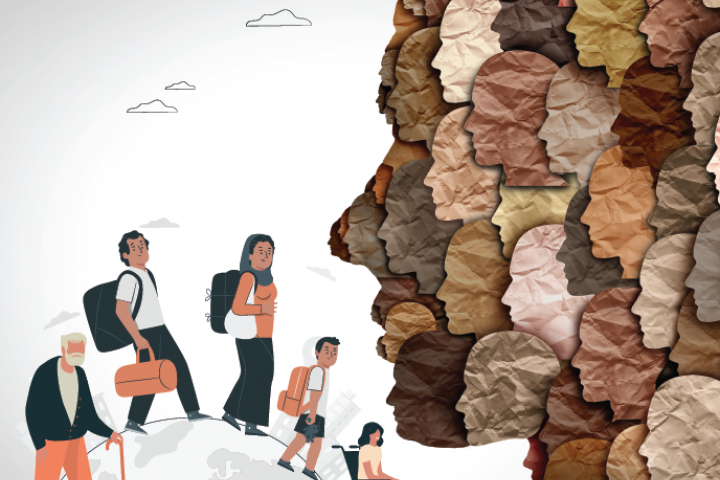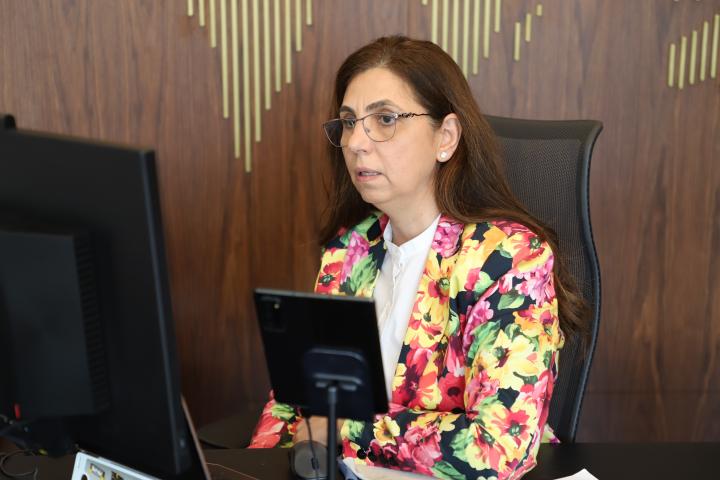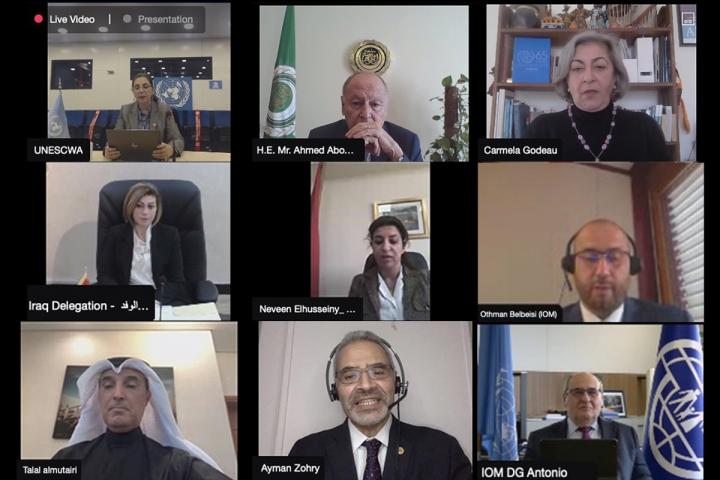News
8 Oct 2018
Beirut, Lebanon
Technology at the heart of International Translation Day at ESCWA
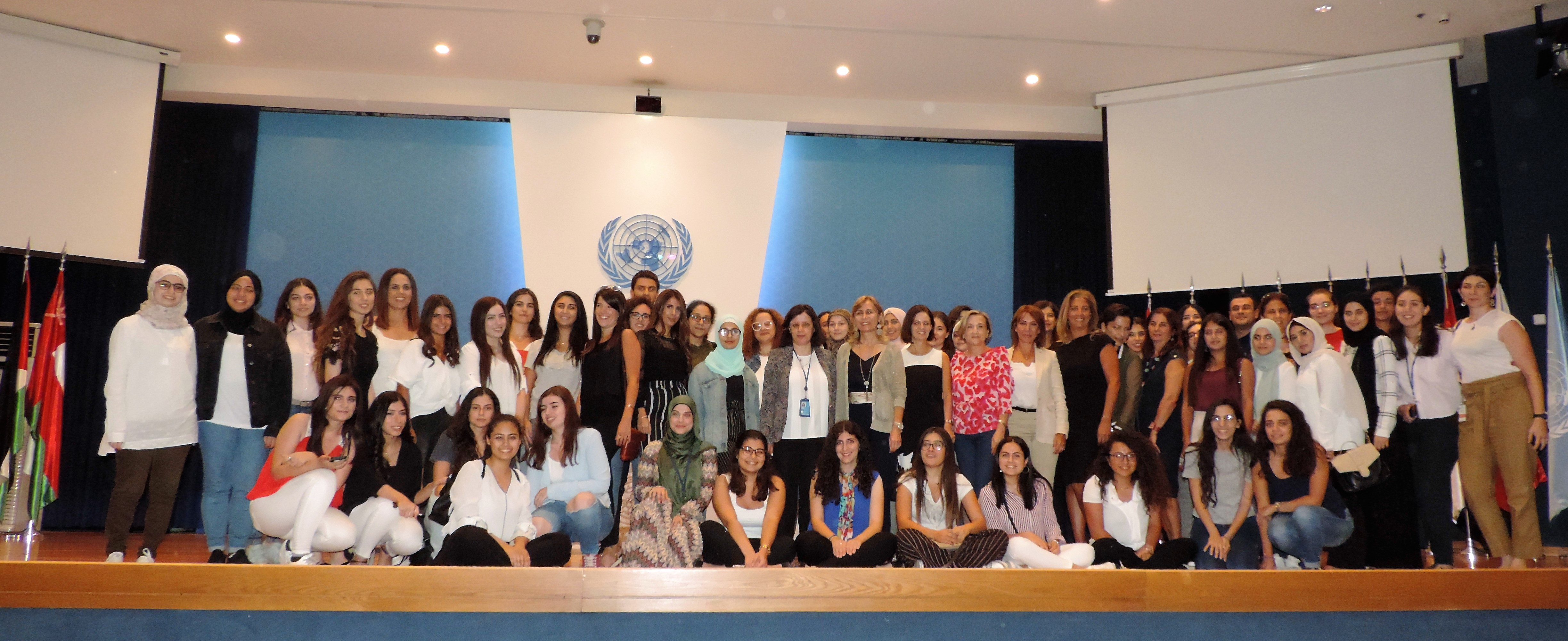
For the occasion, observed for the second time by the United Nations but a first for ESCWA, the newly appointed Deputy Executive Secretary for Programme, Mounir Tabet, said: “Translators and particularly interpreters are the unknown soldiers; they are hiding behind a screen, a darkened window, we do not see them but they make us heard, they get us to communicate our message.” Addressing them, he added: “Thank you very much for all the great work that you do.”
The Day was observed by the UN regional commission under the theme ‘technology in translation’, in line with the focus of the 30th Ministerial Session of ESCWA held last June in Beirut, which discussed how new and emerging technologies are shaping the world as we know it today.
“No one is denying the benefits of artificial intelligence, but it remains artificial,” said the Chief of Conference Services at ESCWA, Nidale Noun. She added that while technology offers an unprecedented ability to access information, we need to be careful as it is often unable to make the difference between the essential and the nugatory in terms of style and content. “There is no hope that it will ever be able to do so; human intelligence will always have to intervene to analyse, discern and make the final choice,” she underscored.
In this context, the Director of the School of Translators and Interpreters of Beirut at Saint Joseph University, Gina Abou Fadel, urged translation schools not to turn a blind eye to ongoing technological development. “On the contrary, we need to adapt our programmes to prepare more competent and efficient translators who are up to the current market demands,” she said.
On how technology can be useful to translators, Ms. Abou Fadel noted: “They can avail of what technology has to offer in terms of text processing, available online or digital reference material and dictionaries, or they can go even further and use Computer Assisted Translation tools.”
She added that translators can also increasingly make use of automated translation provided they remain vigilant to the risks entailed and edit the outcomes before using them: “This is why we guide students towards translation review and localization which help develop their skills.”
Meanwhile, Victor Khashan, Associate Professor of Applied Linguistics and Chair of the English Department at the Lebanese American University, spoke about linguistics and technology in translation, assuring that technology is a friend, not a foe.
Mr. Khashan presented on Corpus Linguistics and said: “The purpose of the presentation today is to introduce the translation community to this methodological approach and show them how we can use technology to enhance language proficiency and translation in the programme.”
The academic and youth participation in the event reflected ESCWA’s goal of keeping abreast of the latest developments in the field of translation. According to Roula Majdalani, the Acting Deputy Executive Secretary for Programme Support of the commission, “ESCWA has been recognised as an authority in translation in the region, and a major reference point for the Arabic language within the UN family.”
Ms. Majdalani added: “It was heart-warming to see young students. To these young talents I say: let no obstacle come in the way of fulfilling your aspirations.”
The event took place as the UN General Assembly convened in New York for its high-level session. “Delegates from 193 countries attend this world forum to make their voices heard and to lend their ears to the voices of others,” Ms. Noun noted.
“Imagine this meeting without translators: the broad arena of dialogue would doubtlessly shrink and could cease to exist altogether. The most dangerous prospect is unilateralism replacing dialogue, which does not reflect this organization or the future world it is intended to represent,” she concluded.
On 24 May 2017, the General Assembly adopted resolution 71/288 on the role of language professionals in connecting nations and fostering peace, understanding and development, and declared 30 September as International Translation Day.
